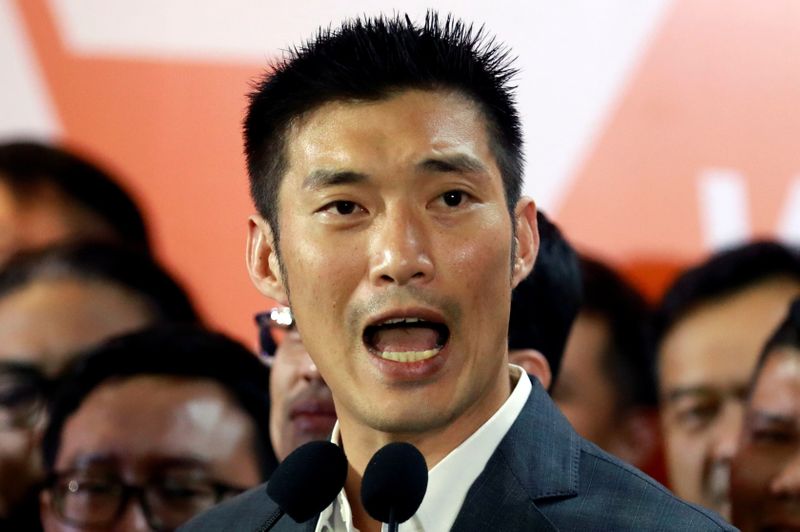BANGKOK (Reuters) – Thailand’s government on Wednesday filed a criminal complaint of defaming the monarchy against a banned opposition politician after he criticised the country’s COVID-19 vaccine strategy.
The move could mark the highest-profile lese majeste case since a wave of anti-government protests emerged last year and extended to criticism of King Maha Vajiralongkorn over accusations of meddling in politics and taking too much power.
The complaint against Thanathorn Juangroongruangkit under Article 112 of the criminal code came two days after he said the government was too reliant on a company owned by the Crown Property Bureau, which is under the king’s personal control, to produce vaccines for Thais.
Lese majeste in Thailand punishes defaming or insulting the king by up to 15 years in prison.
Government officials who filed the complaint told reporters Thanathorn had defamed the monarchy by linking it to the vaccine strategy.
“Thanathorn distorted facts and caused misunderstanding among people,” Suporn Atthawong, a minister in the prime minister’s office, told reporters.
“He violated the monarchy, which upset Thai people who love and protect the monarchy.”
The complaint, which also included a cyber crime accusation of uploading false information, came after Prime Minister Prayuth Chan-ocha, who took power in a 2014 military coup, vowed on Tuesday to prosecute “distorted” information about the vaccine strategy.
“The more you discredit or harass me with legal cases, the clearer my suspicions become,” Thanathorn, who was banned from politics for 10 years by a court last year, said in a Facebook post following the government’s complaint.
The Progressive Movement, headed by Thanathorn, said earlier there was no insult in his comments at the group’s event titled “Royal Vaccine: Who Benefits and Who Doesn’t?”, broadcast on Facebook Live on Monday.
“It’s obvious that 112 is being used again as a political tool,” Pannika Wanich, Thanathorn’s colleague and one of the group’s leaders, told Reuters, referring to the law.
Charles Santiago, a Malaysian lawmaker who chairs the Association of Southeast Asian Nations’ Parliamentarians for Human Rights, called the move “yet another illustration of the cynical weaponisation of the lese majeste law to stifle any form of criticism”.
Government spokeswoman Ratchada Dhanadirek said prosecutions were not politically motivated.
“The government doesn’t need to use the law as a political tool to deal with anyone,” she told Reuters. “We’re focused on urgent economic problems and long-term national recovery.”
The Progressive Movement was formed after a court last year ruled to dissolve Thanathorn’s Future Forward Party, which came in third in 2019 elections held five years after Prayuth’s coup.
Opposition parties accused Prayuth’s junta of designing the elections to ensure he remained in power. Prayuth’s pro-military party has said the elections were free and fair.
(Additional reporting by Panarat Thepgumpanat; Editing by Ed Davies, Clarence Fernandez and Nick Macfie)
























